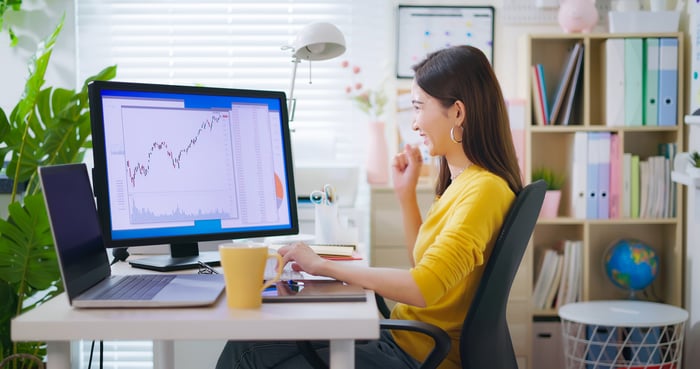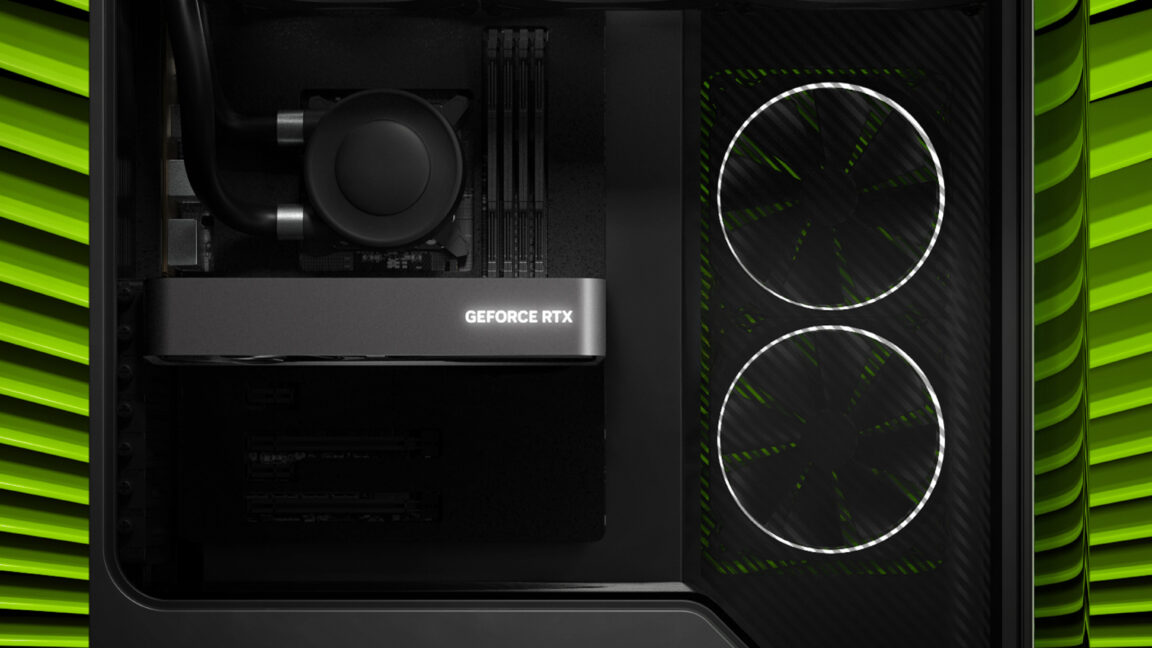3 Unstoppable Stocks to Buy in August
Key Points
Investors have multiple reasons to like AbbVie stock.
Eli Lilly remains a top stock to buy and hold.
Vertex Pharmaceuticals is moving quickly to expand its markets beyond cystic fibrosis.
The "it" factor. Some stocks have it. Other stocks don't. But the ones that do can be virtually unstoppable.
Three Motley Fool contributors believe they've found such unstoppable stocks with the "it" factor to buy in August -- and they're all in the healthcare sector. Here's why they picked AbbVie (NYSE: ABBV), Eli Lilly (NYSE: LLY), and Vertex Pharmaceuticals (NASDAQ: VRTX).
Where to invest $1,000 right now? Our analyst team just revealed what they believe are the 10 best stocks to buy right now. Continue »

Image source: Getty Images.
There are many reasons to buy this stock
Prosper Junior Bakiny (AbbVie): It's been a little over two years since AbbVie lost patent exclusivity for its best-selling drug, autoimmune disease medicine Humira. That didn't stop AbbVie, though; it just slowed it down momentarily. The company rebounded nicely and has since returned to top-line growth. AbbVie now owns another one of the top-10 selling therapies in the world, Skyrizi, which targets several immunology conditions.
Skyrizi's sales have been growing at an incredibly rapid rate. Together with Rinvoq, AbbVie's immunology lineup has successfully filled the gap left by Humira. That's an important reason to consider the stock: AbbVie's ability to overcome a significant patent cliff speaks volumes about its innovative abilities. Beyond that, AbbVie's lineup is deep. It features older products that continue to make meaningful contributions to its financial results, such as its Botox franchise, and newer products that can help drive top-line growth for a while, like migraine treatment Qulipta.
AbbVie's pipeline also looks deep. The company should be able to record consistent clinical and regulatory wins.
Lastly, we can't mention AbbVie without pointing out its incredible dividend track record. The company is part of the exclusive group of Dividend Kings, boasting an active streak of 53 consecutive payout increases, which includes the time it spent as a division of its former parent company, Abbott Laboratories. AbbVie's forward yield of 3.5% is much higher than the S&P 500's average of 1.3%, and its cash payout ratio looks reasonable at 61.8%.
In addition to an excellent underlying business, a strong lineup, and a solid pipeline, AbbVie is an outstanding stock for income-seeking investors. Investing in this company could yield superior returns over the long term.
Eli Lilly is a top growth stock to own for years
David Jagielski (Eli Lilly): A stock that looks unstoppable right now is Eli Lilly. While many investors will focus on its highly successful GLP-1 drugs, Zepbound and Mounjaro, as the main reasons to invest in the business, there's much more behind the company, and why it's a top growth stock.
Eli Lilly has a promising Alzheimer's treatment, Kisunla, which regulators approved for use last year. It's still in the early innings of its growth and according to analysts, it could generate up to $5 billion in annual revenue at its peak. Meanwhile, Eli Lilly is still focusing on developing more life-changing treatments for patients. It's planning to invest $4.5 billion into a research and manufacturing facility, which it calls Lilly Medicine Foundry. By utilizing new manufacturing methods to ensure high efficiency, the new center can help the company scale and bring new products to market faster.
The company also has vast resources at its disposal, which can help it invest in research and development and potentially acquire promising businesses along the way. In the trailing 12 months, Eli Lilly has generated $11.1 billion in profit on sales totaling $49 billion. The company's terrific margins, strong growth prospects, and commitment to producing new treatments are why this pharmaceutical stock can be among the best investments you can put in your portfolio right now.
A big biotech innovator that's targeting new markets
Keith Speights (Vertex Pharmaceuticals): To truly be unstoppable, a company can't have competition that could, well, stop it. Vertex Pharmaceuticals has this covered with its cystic fibrosis (CF) franchise. No other drugmaker has approved therapies that treat the underlying cause of CF. The number of companies with experimental CF therapies in late-stage clinical testing that could compete with Vertex totals... zero.
Actually, Vertex's biggest rival in treating CF is itself. The company's newest CF therapy, Alyftrek, offers a more convenient once-per-day dosing than its current top-seller, Kaftrio/Trikafta. However, CF isn't the main reason why I like Vertex. My primary interests lie with other indications the biotech innovator is targeting.
For example, Vertex won U.S. regulatory approval for Journavx earlier this year. It's the first new class of pain medication in over 20 years. Journavx is safe and effective, with none of the side effects and addictive potential associated with opioids -- because it isn't an opioid.
The company's pipeline features promising late-stage programs that could further expand Vertex's market opportunity. Inaxaplin targets APOL1-mediated kidney disease, which affects around 250,000 patients worldwide. Povetacicept holds the potential to treat multiple kidney diseases, with IgA nephropathy first on the list with a patient population of over 1 million. Zimislecel could cure severe type 1 diabetes.
At first glance, Vertex might seem to be priced at a premium, with its shares trading at 26.3 times forward earnings. However, the company's growth prospects are so strong that its valuation is attractive. Vertex's price-to-earnings-to-growth (PEG) ratio, based on analysts' five-year earnings growth estimates, is a super-low 0.58.
Should you invest $1,000 in AbbVie right now?
Before you buy stock in AbbVie, consider this:
The Motley Fool Stock Advisor analyst team just identified what they believe are the 10 best stocks for investors to buy now… and AbbVie wasn’t one of them. The 10 stocks that made the cut could produce monster returns in the coming years.
Consider when Netflix made this list on December 17, 2004... if you invested $1,000 at the time of our recommendation, you’d have $625,254!* Or when Nvidia made this list on April 15, 2005... if you invested $1,000 at the time of our recommendation, you’d have $1,090,257!*
Now, it’s worth noting Stock Advisor’s total average return is 1,036% — a market-crushing outperformance compared to 181% for the S&P 500. Don’t miss out on the latest top 10 list, available when you join Stock Advisor.
*Stock Advisor returns as of July 29, 2025
David Jagielski has no position in any of the stocks mentioned. Keith Speights has positions in AbbVie and Vertex Pharmaceuticals. Prosper Junior Bakiny has positions in Eli Lilly and Vertex Pharmaceuticals. The Motley Fool has positions in and recommends AbbVie, Abbott Laboratories, and Vertex Pharmaceuticals. The Motley Fool has a disclosure policy.





